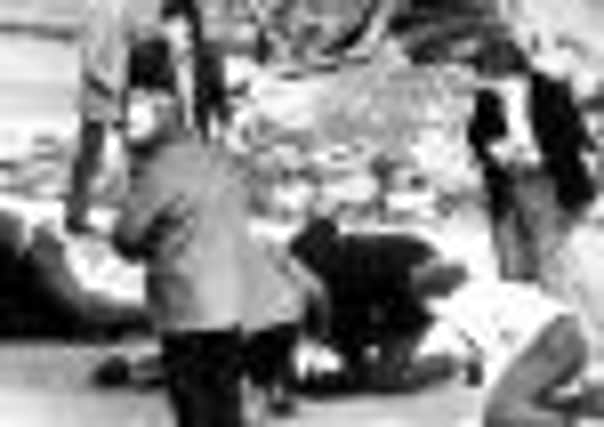Police set to probe 40-year-old Bloody Sunday killings


Chief constable Matt Baggott said: “It is a matter that I think we should be investigating and will be investigating.”
The probe has not started yet because the resources are not available for the four-year investigation, senior officers said.
Advertisement
Hide AdAdvertisement
Hide AdThe Police Service of Northern Ireland has consulted prosecution lawyers as it prepares to open a major investigation. That would require a team of 30 and extra specialist help, which are not available at present.
Assistant chief constable Drew Harris said: “This will be, and is, a long and resource-intensive investigation.
“Sustain it we will, but there are some questions we need to bring to the [policing] board in relation to prioritisation of that and other issues in regard to legacy matters.”
Thirteen people were shot dead when soldiers opened fire on civil rights marchers in Londonderry on 30 January, 1972. Another man died five months later.
The report by Lord Saville unequivocally blamed the army’s parachute regiment for one of the most controversial days in Northern Ireland’s history.
Key findings included:
n No warning had been given to any civilians before the soldiers opened fire;
n None of the soldiers fired in response to attacks by petrol bombers or stone throwers;
n Some of those killed or injured were clearly fleeing or going to help those injured or dying;
Advertisement
Hide AdAdvertisement
Hide Adn None of the casualties was posing a threat or doing anything that would justify their shooting;
n Many of the soldiers lied about their actions;
n Northern Ireland’s deputy first minister, Martin McGuinness, of Sinn Fein, was present at the time of the violence and “probably armed with a sub- machine gun” but did not engage in “any activity that provided any of the soldiers with any justification for opening fire”.
Mr Baggott yesterday said matters contained in the report should be investigated but asked what the consequences were for keeping people safe now if detectives were diverted from today’s crimes.
“I cannot ask the people doing this to take on a whole raft of other tasks which may be serious by themselves,” he told the policing board in Belfast.
Mr Harris said police needed to strike a balance between protecting life in the present day and the need to investigate historic crimes, so-called legacy issues from Northern Ireland’s long conflict.
Controversial killings from the conflict have resulted in 46 inquests being heard, which require police input, an investigation into the death of solicitor Pat Finucane in 1989 and cooperation with the independent Historical Enquiries Team, which is looking at all unresolved cases.
Police are presenting a report to the policing board on legacy issues in October.